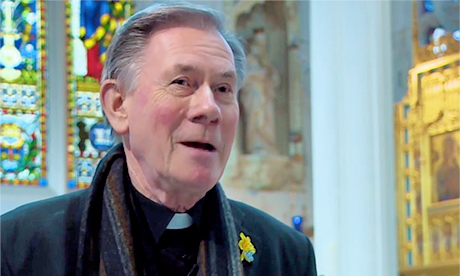I have noted with interest the recent correspondence from some of our retired bishops about how to respond to the dramatic decline in vocations to the priesthood.
I celebrated my 48th anniversary of ordination at the end of July and am happily caring for two large parishes in south Liverpool.
For most of the 1970s I was Director of Vocations for my congregation, the Redemptorists. During the 1990s I was involved with the education of our students until we finally ran out of them and closed the house in Canterbury.
When I was a student in the 1960s the numbers coming from the novitiate to the seminary each year were sometimes in double figures, but then came the dramatic haemorrhaging, not only of students, but of the newly-ordained as well.
In the meantime there have been periodic surges with sizeable groups trying their vocation with us, and the flow has only occasionally dried up completely, but now in our province we have only two men in training, one of whom is already in his fifties, and we have only nine priests less than 70 years of age.
This story is being repeated across the religious congregations and dioceses of the country and although there may be the odd exception, the trend seems to me to be inexorable.
It would be interesting to do a piece of serious research into the causes of all this, but I believe one thing is certain: the Church community of the immediate future is going to be very different from the one I signed up to serve in 1964.
Indeed in many ways it already is, although we are still clinging on to the old structures.
Unashamedly I am a son of the Second Vatican Council and I continue to rejoice in the energy it released and the freedom it gave us.
Now I see Pope Francis as the most wonderful gift to the Church of our time.
Paradoxically, I have never felt more content or affirmed in my ministry than I do at present, yet deep down I also sense a real sadness.
There is a strong human instinct to want to leave a legacy, and for those of us who are not married and able to rejoice in the next generation through our children, the next best thing is surely to see our way of life flourishing and developing.
Here in Liverpool, the Redemptorists now have five priests in their eighties, five of us in our seventies and the most recently ordained, who is thirty-eight.
For years I have been involved in the work of restructuring in our own Redemptorist Congregation as well as in the dioceses in which I have lived.
In the early 2000s I had the privilege of facilitating the clergy meetings in Portsmouth as the diocese reduced from some 90 parishes to 24 pastoral areas.
In Liverpool we are looking at how our deaneries (pastoral areas) are going to be able to cope in the future as we work towards a Congress in 2020.
Recently I spent the inside of a week with the Military Chaplains of the three Services, reflecting on how they are going to cope.
For the last three years they have been without a Bishop, though the week after our meeting, that was rectified with the appointment of Bishop Paul Mason.
However, I was amazed to find that the total number of military chaplains is only just over twenty, with only four in the RAF, two of whom are deacons.
In the Redemptorists we now have Conferences covering the continents of the world, in an attempt to help us restructure for mission.
As you can imagine, in Europe it is hard to find a province whose statistics are not comparable to our own.
So I ask myself, why are we not acknowledging this reality?
Why do we continue to try and shore things up?
Do we only have one model of priesthood which requires that men study for six or seven years and live as celibates?
Did not Cardinal Hume’s arrangement with Rome over the Anglican clergy who wished to be received into the Church drive a cart and horse through the celibacy issue? Continue reading
- Timothy J. Buckley is a Redemptorist. He is Parish Priest of Bishop Eton and St Mary’s, Woolton (Liverpool, England)
- Image: YouTube
News category: Analysis and Comment.




